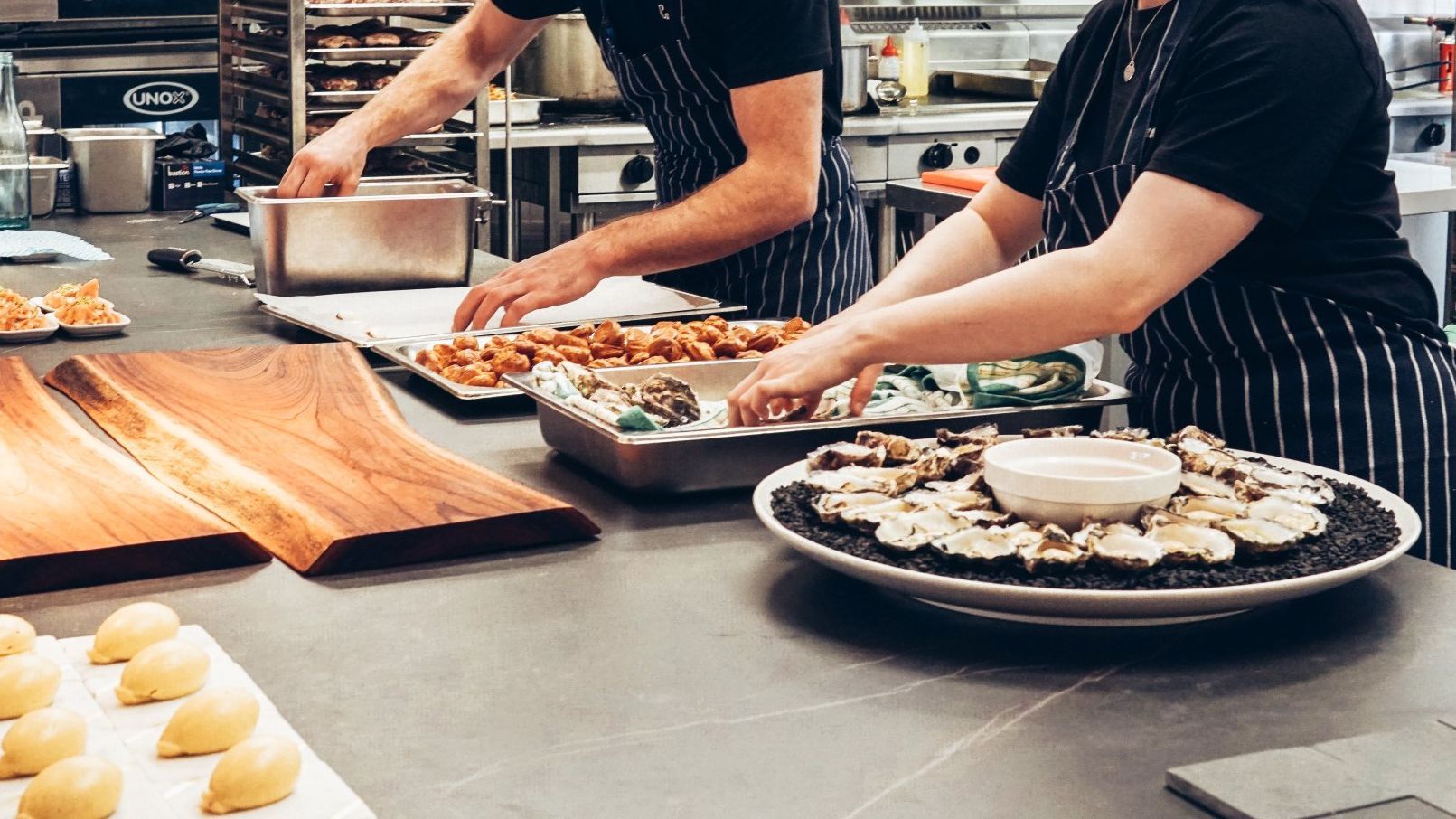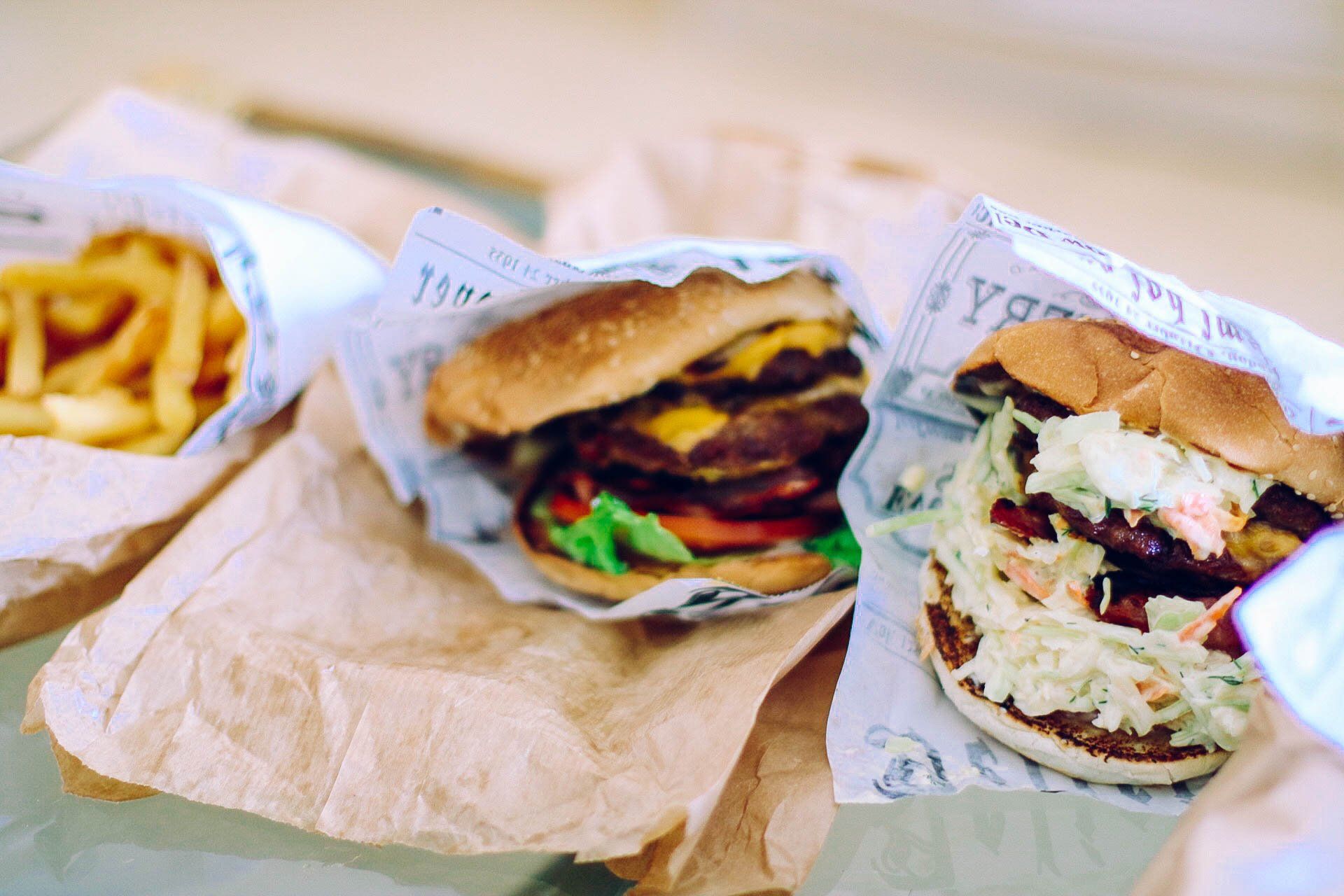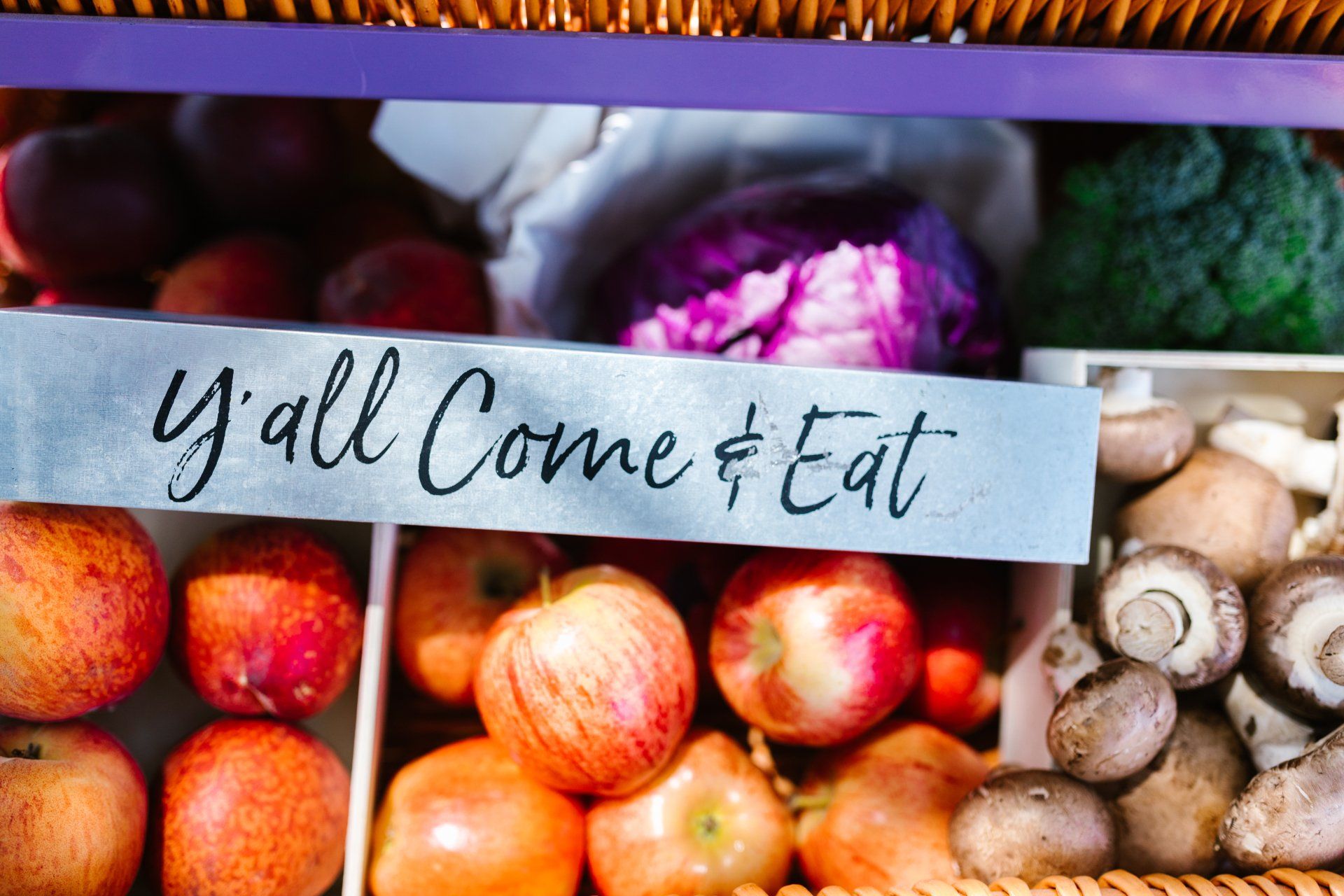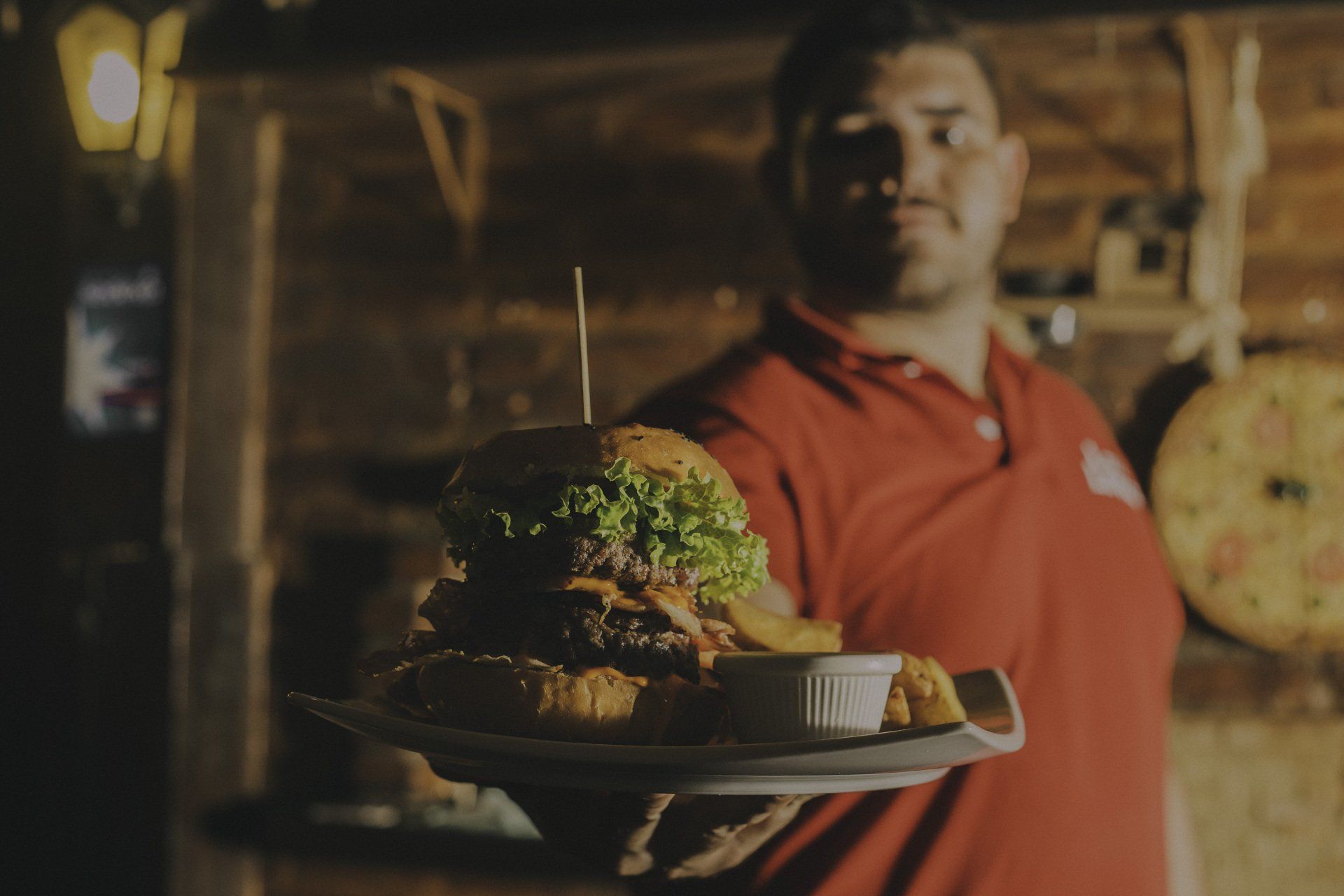News & Media
Tips and tricks to help you during this journey. Learn about Hawai‘i's food business best practices and get to know what Ho‘onui has to offer!

Many people start small businesses “accidentally,” by doing side gigs and become popular. When this happens, progress happens so quickly and can take on a life of its own without planning and organization. This can lead to disastrous consequences for some, which can lead to business failure. However, through thought and planning of how to run a growing business, it can evolve into a prosperous business. Setting the business up for success includes developing processes and procedures that can be a lifesaver. 1 An important step that does not get enough attention is analyzing whether or not a potential business idea solves a problem and planning for new business success. Although you may think your business idea is great, it could become a financial black hole to keep it going if you don’t understand your target market–who actually needs your product or service. 2 Another is understanding business finances and developing a business plan. This can be overwhelming, especially if you don’t have a business or financial background. The good news is this hurdle can be overcome by taking business training, creating business planning and projection documents, and finding a mentor to guide you through the startup process. 3 When planning and making financial projections, it’s important to establish good financial best practices to really understand your costs. One key activity is to open a business bank account. This is to help to keep your business and personal finances separate to and track true costs of your income and expenses. 4 If you sell food and accept both cash and digital payments, it’s important to deposit all cash receipts into your business bank account immediately following your popup, farmers market, food truck or festival events. This helps ensure you are accurately capturing your sales revenue. Many entrepreneurs handling cash make the mistake of dipping into the cash box to pay for personal items, which leads to errors in their financial records. 5 Always use your business debit or credit card for all purchases for the business. The goal is to have both revenue and expenses recorded in your bank account, which helps to manage your finances. 6 Use an online financial accounting software to track all transactions and easily generate reports about the business. Many software options offer mobile apps for business customers to access their financial information anywhere. These programs can directly connect with business bank accounts and can transfer the bank records to the software to show up-to-date financial information about the business. 7 Save your business transaction receipts, especially when cash is used to make business purchases. These transactions will be needed to add to the accounting software, either through the app, or through manual entry. 8 Another tip for managing business finances is to create a main business bank account for revenue and set up accounts to serve for specific purposes. You can make it part of your regular process to transfer predetermined percentages to these accounts. This helps to avoid overspending what’s in the main account and encounter shortfalls when it’s time to pay expenses. It also allows you to designate profit for yourself. It may take some time to start “paying yourself profit,” by diligently tracking your business finances, you can make this happen. Some recommended categories are: Profit Operations Taxes By being organized and creating best practices and procedures, small business entrepreneurs can keep better track of their finances and be prepared to pay important expenses. Not only is this a critical part of running a small business, but also minimizes the stress from scrambling at the last minute to understand the finances, pay important bills, and run a successful business that can grow and flourish.

What are Customer Relationships? Customer relationships describe the interactions a business has with its customers or clients and are crucial whether you’re a microenterprise, corporate entity, or government organization. These interactions involve how you acquire customers (inbound), retain them, encourage them to purchase more products or services (upsell), and keep them informed about additional value your organization offers (outbound). According to the Business Model Generation, customer relationships are the connections a business establishes with different customer segments. These relationships can be personal or automated, short-term or long-lasting, and can even evolve into a micro community. Why are Customer Relationships Important? Customer relationships are crucial because they influence the customer journey and can significantly impact the cycle of repeat business. When customers feel valued and heard, their satisfaction increases, enhancing the likelihood of continued business and positive referrals to new customers. How to Determine Your Customer Relationship Strategy By understanding customer segments, your desire to serve is significant to shaping the customer relationship experience. For instance, if your goal is to be highly automated with minimal human interaction, you will attract customers who prefer a hassle-free transaction for their products. On the other hand, if your goal is to build strong relationships with each customer, consider in-person interactions and regular touchpoints through newsletters, community events, or other personal communication methods. Regardless of the type of relationships you choose to establish with your customers, it’s essential to understand the business process, identify your target audience, and decide on the nature of your interactions. The customer experience plays a critical role in shaping how customers engage with your business and will pave the way for your business's future success.

Are you looking to attract more customers and grow your street or mobile food business in Hawai`i? Understanding the different communication channels and identifying and using the right ones to connect with specific customer demographics can significantly boost your brand, enhance your customer base, and strengthen your foodie community. The Entrepreneurial Spark Many street food entrepreneurs begin their journey organically and unexpectedly. You might have catered to a large gathering and received glowing reviews or participated in a festival where your food idea was a hit. Whatever your inspiration, it's crucial to leverage that initial success into a sustainable business. Assessing the validity of your business idea and creating a business model canvas (1-page business plan) will help map your success. One important element is identifying the channels you’ll use to communicate your brand and interact with your customers. Mastering Communication Effective communication with your audience is essential, not just for sharing your daily menu but for building lasting relationships. Your customers need opportunities to interact with you, whether to praise your dishes, inquire more about your offerings, or provide feedback. Key Communication Methods Understanding and utilizing various communication methods will help you effectively reach and engage your audience: 1. Verbal Communication : This can be direct conversations at your food cart or through digital means like phone calls and virtual meetings. Such interactions create a personal touch that can differentiate your business. 2. Written Communication : Keep your customers informed and engaged through texts, emails, social media posts, and even traditional methods like flyers and postcards. These tools are vital for announcing your location, specials, or changes in service hours. 3. Nonverbal Communication : The way you present yourself and interact with customers can speak volumes. Body language, eye contact, and even the setup of your stall contribute to how customers perceive your business. These cues, though subtle, are powerful in person or through video. Choosing the Right Channels Selecting appropriate communication channels is crucial. Different customers may prefer different types of interactions. For instance, younger customers might engage more with social media updates, while others may value face-to-face communication. Listening to customer feedback is key—it can inspire new dishes and help refine your approach. Engaging to Grow Communication should be a two-way street. It's not just about selling; it's about engaging in a manner that encourages customers to participate in your business's growth. This could mean involving them in menu decisions or making them feel like part of your brand's community. Conclusion For street and mobile food vendors, especially in a diverse place like Hawai`i, understanding how to communicate effectively is more than a necessity—it's a strategy for growth. By choosing the right channels and fostering genuine interactions, you can turn casual eaters into loyal customers and active promoters of your business.

Discover the importance of strong supplier relationships for Hawaii food businesses. This comprehensive article explores the benefits, strategies, and tips for building and maintaining successful partnerships with suppliers. Reach out to our Hawaii food business consulting company for expert guidance in establishing strong supplier relationships that will enhance your business's success.

Embarking on the journey of starting a food business is definitely thrilling, especially when your passion for a particular culinary concept is the main focus in your day-to-day thoughts. I often refer to it as the "Lala land stage" (where all you can think of is the fairy tale version of starting your business where no challenges exist), envisioning the success of your venture seems effortless. Whether it's the nostalgic flavors of your ethnic cuisine, a beloved dessert, or the dream of operating a bustling food truck, the key to a thriving food business lies in careful planning and realistic cost projections. Having collaborated with a number of commercial kitchen food trucks and other mobile food businesses clients, I've observed a common pitfall: overspending (and getting into personal financial debt) due to a lack of understanding about costs and separating personal from business finances. Many entrepreneurs find themselves grappling with the financial strain of extensive menus without a clear comprehension of the associated expenses. This leads to challenges such as insufficiently pricing items to cover production costs and lacking a profitable margin. Here are crucial considerations when launching your small food business: Startup Costs: Determine the initial investment required to launch your business. Monthly Operating Costs : Identify recurring expenses your business will incur Projected Monthly Revenue: Estimate your expected income. Compliance and Tax Costs: Factor in costs related to regulatory compliance and taxes Available Startup Capital: Assess the funds you have at your disposal. Additional Funding Needs: Determine how much extra capital you’ll require. Break-Even Analysis: Calculate the sales needed to cover the costs and break even. Developing a startup cost projection worksheet aid in understanding the financial landscape of your venture will be beneficial. It provides insights into the costs, your financial contribution, and additional funding requirements. Equally important is creating a 12-month or 2-year monthly projection of revenue and expenses. This serves as a roadmap, indicating the volume of sales needed to cover expenses and achieve profitability. While these documents are initially estimates, they form a foundation for understanding your business's financial dynamics. Over time, you'll refine your projections based on real-world outcomes. Pay particular attention to determining the cost of production for each menu item and be sure to include overhead. This knowledge enables you to price products effectively, covering expenses and generating profit. Consider starting with a limited menu to gauge customer preferences before expanding. Regularly review and adjust your projections based on performance, enhancing efficiency and fostering the successful growth of your small food business. Understanding costs, making informed financial predictions, and adapting to market dynamics

Discover how online reviews can be a game-changer for your Hawaii food business. This exciting article explores the impact of positive reviews, strategies to generate more reviews, and how our consulting services can help you leverage the power of online feedback to grow your business and attract new customers.

Craft an irresistible menu for your food business in Hawaii with these expert tips. From incorporating local flavors to balancing variety and simplicity, this blog post offers valuable insights to attract customers and maximize your business's success. Discover how our food business consulting service can help you create a menu that stands out in Hawaii's culinary landscape.

Do you have a great idea for a small food business? If you’ve got great recipes and want to start your small food business, before you jump on the internet and register your business, take a deep breath and analyze your idea. Not all business ideas are meant to come to fruition, but, by doing a SWOT Analysis, you’ll be able to see whether your business startup is viable or not, and if you have what it takes to make it happen. Many people are so excited when they get a vision of starting their own business, but don’t spend the time to see if they have the skills, tools and resources to execute launching it. The SWOT Analysis is an assessment tool that requires you to list and review strengths, weaknesses, opportunities and threats of your business startup. Strengths stands for listing the strengths of your business idea and the strengths you bring to the potential business. Weaknesses is the honest inventory of the business owner’s and startup idea’s weaknesses. Opportunities are the ways that your business can grow and become successful. It can include people, funding, stakeholders, partners and marketing. Threats are internal and external forces that could destroy the success of the business idea. It can range from the startup owner’s inability to manage finances, to an abundance of similar businesses, to finances. If the assessment is done with complete honesty, the process can be eye-opening. You may find you have strengths you didn’t realize you had and, conversely, you may minimize the business idea’s weaknesses. When conducting a SWOT analysis, it’s important for you to have one or two of your most trusted friends or family members give feedback. It’s important that these reviewers are willing to provide honest feedback. By conducting a SWOT analysis, you’ll see skills you never thought you had and challenges that will need to be overcome. It’s okay. If you can overcome your challenges and understand that you bring a lot to your potential business, you can build and grow a successful small food business.

Embarking on a food business venture in Hawaii is an exciting endeavor. The vibrant culinary scene, rich cultural heritage, and the abundance of local flavors create a unique environment for food entrepreneurs. However, ensuring compliance with permits and regulations can seem overwhelming, especially for those new to the industry. In this comprehensive guide, we will navigate the specific permits and regulations for food businesses on O'ahu, providing valuable insights and resources to help you thrive. Our SEO consulting services are designed to optimize your online presence and connect you with the right resources for success. Understand the Licensing Process: Before launching your food business, it's crucial to understand the licensing process. In Hawaii, the Department of Health (DOH) regulates food establishments. Begin by obtaining a General Excise Tax License and then proceed to apply for a food establishment permit. Familiarize yourself with the specific requirements and gather the necessary documentation to streamline the application process. Comply with Food Safety Standards: Food safety is of paramount importance in the food industry. Ensure that your establishment meets all health and safety regulations to protect both your customers and your business. Develop a comprehensive food safety plan, train your staff in proper hygiene practices, and maintain accurate records of temperature logs and food storage. Acquire the Appropriate Permits: Beyond the general food establishment permit, additional permits may be required depending on the nature of your business. For example, if you plan to operate a food truck, you'll need a Mobile Food Establishment Permit. If you intend to serve alcohol, an additional liquor license will be necessary. Research and understand the specific permits relevant to your business to ensure full compliance. Understand Zoning and Land Use Regulations: Zoning and land use regulations vary across different areas of O'ahu. Ensure that your chosen location aligns with the zoning requirements for food businesses. Consult the Department of Planning and Permitting (DPP) to verify that your desired site is suitable for your operations and avoid potential conflicts in the future. Stay Informed about COVID-19 Guidelines: The ongoing COVID-19 pandemic has introduced additional regulations and guidelines for food businesses. Stay up to date with the latest mandates from the DOH and local authorities. Adhere to social distancing protocols, implement robust sanitation practices, and ensure compliance with mask-wearing requirements to safeguard the health of your staff and customers. Secure Proper Insurance Coverage: Protect your food business from unforeseen events by securing appropriate insurance coverage for business owners in Hawaii . This includes general liability insurance, product liability insurance, and workers' compensation insurance. Consult with insurance providers who specialize in the unique needs of the food industry to ensure you have comprehensive coverage in Hawaii. Consider Sustainability and Environmental Regulations: Hawaii places great emphasis on sustainability and environmental conservation. Embrace eco-friendly practices in your food business by implementing recycling programs, reducing food waste, and sourcing sustainable ingredients. Familiarize yourself with regulations related to composting, recycling, and plastic usage to minimize your environmental impact. Seek Local Resources and Support: Navigating permits and regulations can be complex, but you don't have to do it alone. Take advantage of the resources and support available to food business owners on O'ahu. The Hawaii Small Business Development Center, local industry associations, and community organizations can provide guidance, workshops, and mentorship to help you navigate the regulatory landscape. Maintain Ongoing Compliance: Regulatory requirements may evolve over time, so it's crucial to stay informed and maintain ongoing compliance. Subscribe to updates from the DOH, DPP, and other relevant authorities to ensure you're aware of any changes that may impact your business. Regularly assess your operations and make adjustments as needed to remain compliant. Conclusion: Starting a food business on O'ahu is an exciting journey, and understanding the permits and regulations is vital to your success. By familiarizing yourself with the specific requirements, maintaining compliance, and leveraging local resources, you can navigate the regulatory landscape with confidence. Embrace the opportunity to share your culinary creations and contribute to the diverse and thriving food scene on O'ahu .

Discover powerful social media strategies to promote your food business in Hawaii. From engaging content to influencer partnerships, this comprehensive guide offers valuable insights to attract customers and grow your business. Learn how our consulting services can take your social media presence to new heights.

Meta Description: Discover the crucial role of sustainable sourcing for small food businesses in Hawaii. Learn why it's essential for local food business owners to prioritize sustainability and how it can lead to long-term success. The author offers consulting services to help Hawaii food businesses achieve sustainable practices.

As consumers become increasingly environmentally conscious, small food businesses must adapt to meet their changing expectations. Sustainable practices not only benefit the environment, but they can also attract new customers and increase brand loyalty. In this blog post, we'll discuss some tips for reducing your small food business's environmental footprint and attracting eco-conscious customers. 1. Use eco-friendly packaging Under Honolulu City Ordinance 19-30, it's the law! One of the easiest ways to reduce your environmental impact is to use eco-friendly packaging. This can include biodegradable or compostable materials, as well as recycled paper or plastic. Customers are increasingly looking for businesses that prioritize sustainability, so switching to eco-friendly packaging can help attract new customers while also reducing your environmental footprint. 2. Reduce food waste Food waste is a significant issue in the food industry, and small businesses can take steps to reduce their waste. One option is to donate excess food to local food banks or charities. Additionally, you can consider implementing a food waste reduction program in your business, such as composting or repurposing excess ingredients. 3. Source locally Sourcing ingredients locally not only supports your community but also reduces the carbon footprint of your business. Local ingredients don't have to travel as far to reach your business, which means fewer emissions from transportation. Additionally, customers are increasingly interested in knowing where their food comes from, so highlighting your locally sourced ingredients can be a great marketing tool. 4. Reduce energy usage Reducing energy usage is an important step in reducing your small food business's environmental impact. This can include simple steps such as turning off equipment when it's not in use, installing energy-efficient lighting, and using low-flow water fixtures. Not only will these steps help the environment, but they can also reduce your energy costs over time. 5. Educate your customers Finally, it's essential to educate your customers on your sustainable practices. Share your efforts on social media or through in-store signage to raise awareness and show your customers that you prioritize sustainability. Additionally, consider offering eco-friendly incentives such as discounts for bringing reusable containers or offering a discount for customers who bring their reusable bags. In conclusion, sustainable practices are essential for small food businesses to reduce their environmental impact and attract eco-conscious customers. By implementing eco-friendly packaging, reducing food waste, sourcing locally, reducing energy usage, and educating your customers, you can make a positive impact on the environment while growing your business.

As a small food business owner, you may find yourself working in isolation, struggling to keep up with industry trends, and missing out on valuable business opportunities. This is where networking can make all the difference. Building relationships with other entrepreneurs, industry professionals, and potential customers can help your small food business thrive in a competitive market. Here are some tips on how to network effectively and build relationships that will help your small food business grow: Attend industry events: Attending industry events like trade shows and conferences is an excellent way to meet other professionals in your field and learn about new trends and innovations. Make sure to bring business cards and be prepared to introduce yourself and your business. Join industry organizations: Joining industry organizations like the National Restaurant Association or the Specialty Food Association can provide access to networking opportunities, educational resources, and industry insights. Connect with local businesses: Building relationships with other businesses in your community can lead to valuable partnerships and collaborations. Consider partnering with a local coffee shop or bakery to cross-promote each other's businesses. Utilize social media: Social media platforms like LinkedIn and Twitter can be powerful tools for networking and building relationships. Make sure to connect with other professionals in your field and engage with them by sharing their content and commenting on their posts. Attend local events: Attend local events like food festivals, farmer's markets, and community gatherings to connect with potential customers and build relationships with other businesses in your area. Volunteer for industry events: Volunteering for industry events like food competitions or charity events can provide valuable networking opportunities and help you establish yourself as a trusted professional in your field. Follow up: After attending networking events or connecting with other professionals, make sure to follow up with them and continue building the relationship. This can be as simple as sending a follow-up email or scheduling a coffee meeting. Networking is a powerful tool for small food business owners looking to grow their businesses. By attending industry events, joining organizations, connecting with local businesses, utilizing social media, attending local events, volunteering, and following up with new contacts, you can build valuable relationships that will help your small food business thrive.

Managing cash flow is a crucial aspect of running any business, and it's especially important for small food business owners who operate with limited resources. Cash flow management refers to the process of tracking and analyzing the money that flows in and out of your business to ensure that you have enough cash on hand to cover your expenses and invest in growth opportunities. Here are some tips for small food business owners to better manage their cash flow and avoid common pitfalls: Create a cash flow forecast: A cash flow forecast is a projection of the money that you expect to receive and pay out over a specific period. By creating a forecast, you can anticipate potential shortfalls and take steps to prevent them from occurring. Track your expenses: Keep a close eye on your expenses and categorize them into fixed and variable costs. Fixed costs are recurring expenses that stay the same every month, such as rent, while variable costs fluctuate, such as food costs. By tracking your expenses, you can identify areas where you can cut costs to improve cash flow. Invoice promptly: Send out invoices as soon as possible and follow up with clients who haven't paid on time. Late payments can put a strain on your cash flow, so it's essential to stay on top of them. Negotiate payment terms: If you have suppliers or vendors, try to negotiate payment terms that work for both parties. For example, you may be able to arrange for longer payment terms or discounts for early payments. Managing cash flow is critical for the success of any small food business. By following these tips and staying on top of your finances, you can ensure that your business has enough cash on hand to operate smoothly and take advantage of growth opportunities.






